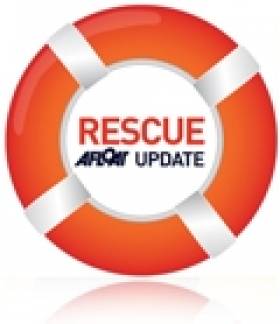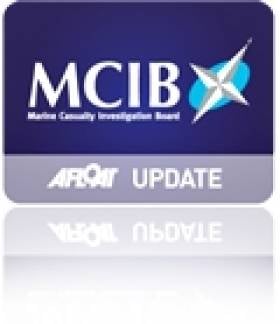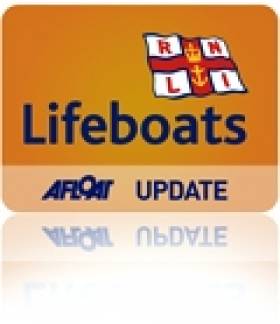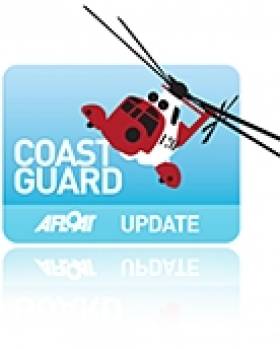Displaying items by tag: distress call
Angler Dies After Lough Corrib Incident
#RESCUE - One angler has died in hospital and another was receiving emergency treatment last night after their boat got into difficulty on Lough Corrib.
According to The Irish Times, the two men were among a party of three on a boat that was struck by a wave off Annaghdown, which knocked one of them into the water.
Though he was reportedly wearing a lifejacket before he went overboard, an empty jacket was then spotted floating on the surface. One colleague entered the water to search for him but was unsuccessful.
Responding to the distress call from a nearby angling boat, the Irish Coast Guard's Shannon helicopter located the missing angler soon after arriving on scene, some 50 minutes after he entered the water.
The man was airlifted to University Hospital Galway, with the coastguard chopper returning for his colleague when he showed signs of hypothermia.
A small craft warning from Met Éireann was in effect throughout the area at the time of the incident.
The Irish Times has more on the story HERE.
Safety Advice for Leisure Boaters in MCIB's Helvick Head Report
#MCIB - The Marine Casualty Investigation Board (MCIB) has called for better safety awareness among leisure boat users in its report into the deaths of two men off Helvick Head in Co Waterford in May 2010.
John O'Brien and Pat Esmonde were lost overboard from their small RIB on 23 May 2010, and their remains were recovered two days later. Post-mortems confirmed that both died by drowning.
The report does not conclude exactly how the incident occurred. But accounts from eyewitnesses who sighted the men in the minutes before state that neither was wearing a lifejacket, despite the legal requirement to do so - and despite O'Brien having no seafaring experience and Esmonde being unable to swim, as confirmed by their families.
The MCIB also noted that while there were two lifejackets aboard the vessel, they were for emergencies and not suitable for constant wear as per the requirements for the vessel class.
Other safety issues highlighted include the kill-cord on the engine, which was not being used, and the fact that the initial distress call was made by mobile phone and not VHF radio.
Though neither had any bearing on this specific incident, the MCIB warned in particular that mobile phone calls are closed in nature, whereas VHF distress calls can be heard and answered by any vessel in the vicinity.
The board recommends that the Minister for Transport "undertakes a highly visible information poster campaign on piers and launching areas relating to lifejackets, VHF radio and emergency contact details" and also reminds boaters of their legal obligations.
The full report is available to download as a PDF from the MCIB website HERE.
Five Rescued When Yacht Gets Tangled in Galway Bay
Galway's RNLI lifeboat was dispatched to retrieve the men after their distress call to the Irish Coast Guard.
The men were en route to Rossaveal Harbour at the time when their yacht became tied up in fishing pots.
Fruitless Search After Distress Call from Stolen Radio
Coastguards at Holyhead engaged in a frantic but fruitless search on Saturday after a distress call that was tracked to a stolen radio.
Motorboat & Yachting reports that the north Wales rescue team picked up the automated distress call at 7.30pm.
But with the location of the vessel unknown, and with no way of verifying the veracity of the call, rescuers - including four lifeboats, three coastguard teams and a rescue helicopter - were forced to sweep an area of more than 700 square miles in an effort to track the signal.
Eventually the MMSI code for the radio unit was identified as a derelict fishing boat in Ireland. The Dublin Coast Guard confirmed that the radio had been stolen from the vessel.
Holyhead watch manager Andy Carroll urged anyone buying a second-hand DSC radio to ensure they know how to use it properly, and to confirm their MMSI details are updated.

































































